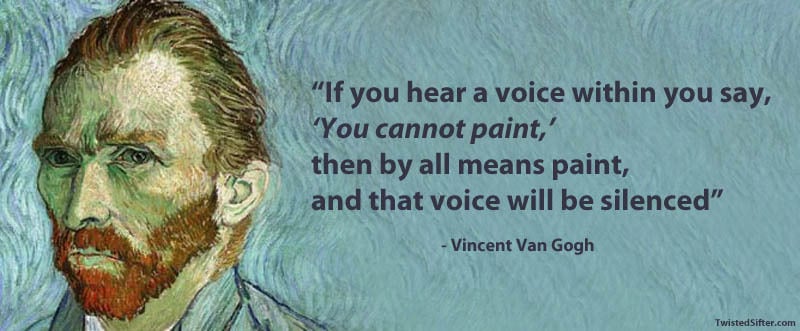There are few people who actively enjoy discomfort. The sheer fact that we are human gives us a preference for feeling in control. Discomfort probably doesn’t feature on the top 10 emotions we like to feel. But as someone jumping, shivering and then relaxing in an outdoor pool once remarked, “It’s not so bad once you’re in.”
Trying to stay within our comfort zone is hard work. If you have had bad experiences of public speaking in the past, you could say, “I’m never going to speak in public again.” But then what happens when your best friend invites you to speak at their wedding? We end up wrestling with dread, making up excuses or inventing some other kind of escape plan.
Or, we could push past the discomfort.
Staying in a comfort zone is ultimately restrictive. While it’s okay to rest a while, holding onto comfort is a bit like a bird refusing to fly because their wings ache. You need to invest in you and that means giving yourself a chance to grow.
Here’s the thing. That same confidence you feel in your comfort zone can be extended beyond it. Everyone has confidence, it’s just that not everyone feels it in the same circumstances. But as we make a habit of venturing into uncomfortable situations, our confidence begins to stretch and grow with us.
How to face down discomfort

Think of something that challenges you right now. Something you dread, or are intentionally avoiding. Perhaps it’s a personal confrontation, a corporate presentation, or a wedding speech. If nothing springs to mind, set a goal that inspires a little discomfort - something you want but are a little afraid of.
Once you have it, write it down.
First, understand that the discomfort you feel at the thought of this challenge is not a bad thing. You can actually view that discomfort as a friend, because it’s a sign you’re stepping out of your comfort zone, giving yourself the opportunity to grow and overcome fear. Anyone who has never felt discomfort has never been courageous.
Second, tell someone about the challenge you’re facing, or the goal you’re setting.
This is a very important step. By sharing with someone, you gain accountability - it’s much harder to back down when you know you’ll have to tell them you didn’t do it. It’s also much easier to achieve a goal when you have someone cheering you on and supporting you. They may be able to help practically too, whether that’s listening to and feeding back on a speech or pointing you in the direction of a useful resource such as a book or TED talk.
One step at a time
You may have heard of a concept called the stretch zone. It’s the area that lies between the familiar and the terrifying. It’s where you feel uncomfortable, challenged, in other words - stretched. .png?width=640&name=Untitled%20design%20(1).png)
But the stretch zone does not reach too far. It does not trip you into a place of paralysis - a place sometimes referred to as the heat zone, where you feel completely overwhelmed. Simply put, if you’re afraid of swimming, you go to a pool with a lifeguard. You don’t jump off a boat into the Atlantic.
List the things that feel just beyond your reach. If you struggle with presenting, consider pitching an idea to two or three people. If public speaking fills you with dread, imagine speaking to a room full of friends.
Remember, if you don’t ask, you won’t get! Nothing happens unless we try. So you need to try. Want a raise? Ask. What a new job? Apply. Want someone to go on a date with you? Ask! Look for the actions that lie within your stretch zone and take them. That’s where the most precious growth happens.
Talk yourself through the fear
They say talking to yourself is a sign of madness but in fact, it’s a really powerful way to change your mindset.
Alison Wood Brooks, in her study Get Excited: Reappraising Pre-Performance Anxiety as Excitement, wrote, “Individuals can reappraise anxiety as excitement using minimal strategies such as self-talk (e.g. saying “I am excited” out loud) or simple messages (e.g. “get excited”), which lead them to feel more excited, adopt an opportunity mind-set (as opposed to a threat mind-set), and improve their subsequent performance.”
One of her conclusions is that self-talk works best when we don’t try to calm down, but instead get excited about the challenge that faces us. If we wait till we feel calm we might never move. So start talking to yourself (perhaps not in front of others!), convert some of that anxiety into excitement, then step out into the stretch zone.
If it feels difficult, it may be because you’re struggling to connect with yourself. As our communication equation teaches, authenticity plus connection equals engagement and that does for self-communication too. Take some time to get to know yourself better, to understand your own motives and values.
And remember not to push too hard. If a challenge is throwing you too far - beyond the stretch and into the heat zone - step back for a moment and invest in yourself. You don’t have to jump into the Atlantic just yet.
Invest in yourself
So why not take some time to invest in yourself this year, to add some strings to your bow. Read some blogs, a book or two about a subject you want to know more about. Podcasts and audiobooks are a great way to do this if you're always on the go or drive to work. If you want to improve in specific areas ask people who can listen and spot things you couldn’t see by yourself. Now is the time to make three resolutions for the year that you feel will bring the right kind of challenge. Imagine yourself at the end of the year, having achieved them - how will you feel?
I'd like to leave you with this recent video of one of our recent clients, Bryan, who did a bespoke Effective Communications course with London Speech Workshop in 2019. He boosted his confidence significantly with some simple tools.
If you’d like some support pushing the boundaries of your communications skills - whether that be because you’d like to aim for a more senior position at work or you're getting ready to pop the question and want a speech ready. We'd love to help you and arm you with our simple methodology to make you a powerful communicator.
Why not sign up to our regular newsletter - which is packed full of tips that you can use the very same day, ideas that will resonate and we hope, delight. We pride ourselves on our simple, intuitive and accessible tools, that have a touch of creative magic. For more tips to overcome public speaking nerves, watch this video.
More recent posts you might like:


